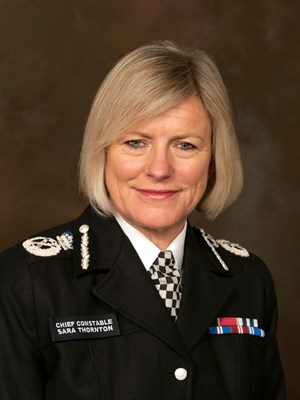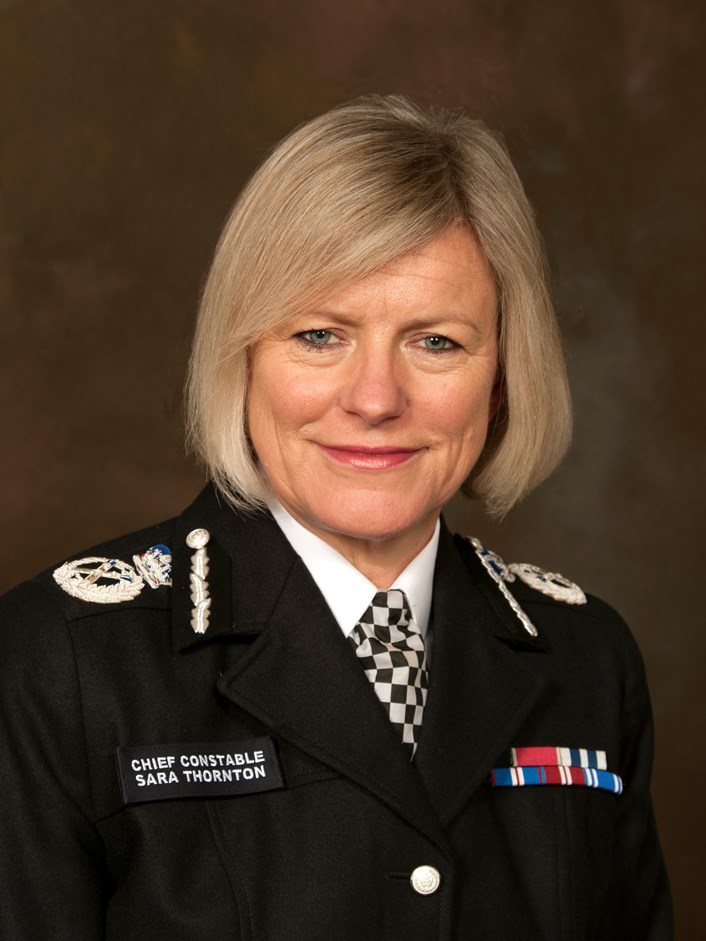03 Feb 2017
Police Chiefs' Blog: CC Sara Thornton - Chief Constables' Council January 2017
As our January meeting of all chief constables was at the Police Federation headquarters, it was fitting that investment in our staff and culture was at the forefront of our focus.
Steve White, Chairman of the Police Federation talked to us about some of the issues his members cared most about – quality training and equipment, better support for police officers assaulted in the line of duty and improved welfare support. There was a commitment from chiefs to work with the Federation on developing quality welfare support. Not just to deal the most serious incidents or issues but to help people through some of the more ordinary experiences that are part of the nature of the job - dealing with society’s most violent, dangerous or anti-social behaviour and supporting people in crisis or suffering.
Chiefs supported the College of Policing’s new leadership principles, which set out what all forces need to do to embed good leadership at every level. Principles include a strong ethos of personal development, continuous learning and development, programmes to develop talent, diverse teams and a commitment to morale and wellbeing at all levels. It’s equally important we test whether our staff’s experience meets these ambitions and chiefs were told about a successful staff survey created by Durham University that is now available for all forces to use.
The College’s plans introduce a licence to practice for officers and staff working in high risk, public protection roles represent a real investment in learning and development for our people. For those working in this vital part of policing, it means they get the right support and training and are properly accredited for their skills. For those we serve, it gives them the assurance that the person dealing with their case is a specialist who is regularly tested to ensure they are fit to practice.
The imperative for policing to be more diverse was high on the agenda. Forces have taken action over the last twenty years to recruitment more women, more people from black and ethnic minorities and more LGBT people but we are still far from being representative of the make-up of our communities today - let alone representative of our communities in ten or twenty years’ time. In fact, a chief told us that if progress continued as it is now their force wouldn’t represent their community until 2089! Chief Constable Ian Hopkins, our new lead for workforce diversity, is working on an action plan to help us put this right.
But our debate was about far more than being more representative in our recruitment. The challenge is to ensure our culture appreciates difference, supports all staff, adapts to different people’s needs and is fair to all. Chief Constable Gareth Wilson is going to spend some time developing a strategy to try and get us there; complex but hugely important work.
Part of ensuring a healthy culture is setting clear, high standards of behaviour, reinforcing them and taking robust action against those who fall short of those standards. Chief Constable Stephen Watson gave us an update on his important work to develop a national strategy to raise the standards of all forces in preventing police officers abusing their powers for sexual gain or sexually harassing colleagues.
This kind of behaviour is committed by a minority but all my colleagues are determined that there should be no place for it in policing. New training programmes to spot the signs, internal communications campaigns, confidential reporting lines and proactive intelligence gathering are all on the table. We’ll consider the final plan when we next meet in April.
We also debated how we would start collecting data on police use of force. From April this year, almost all forces will start recording and publishing every time an officer uses force - whether that is a form of restraint, handcuffing, use of a Taser or CS spray. These powers are legitimately available to police officers under law to enable them to protect the public and themselves from harm. It is right that we are transparent about how and why they are used. The data collected will help us to compare the effectiveness of different techniques and tactics and we’ll be able to make more informed decisions about training, tactics and equipment.
Recording and publishing all of this data is a significant change for forces as they use a range of recording systems. We have to be honest that in the first year, there will be data gaps meaning that comparisons between forces will be unreliable and potentially erroneous. But in the longer term this is an important exercise in transparency and one that will demonstrate the really difficult situations officers are confronted with.
Notes to readers
We will blog about the discussions and decisions at CCC after each meeting.
Of course, there are some parts of the discussions at CCC that cannot made by public at the time of writing because relate to information that has been classified as restricted or secret.
The minutes of this meeting will be published at a later date.
If you have any questions about anything in this blog or any feedback, please get in touch. Because of the nature of the meeting and what is discussed, there may be some information requests that we cannot meet. We will always try to answer your questions as fully as we can.
Contact information
Communications office
By phone: 0800 538 5058
By email: press.office@npcc.police.uk


